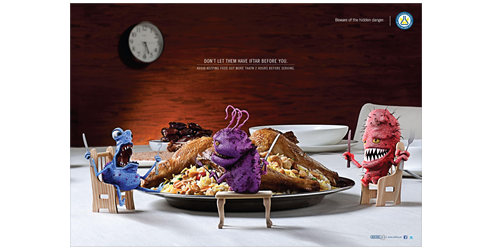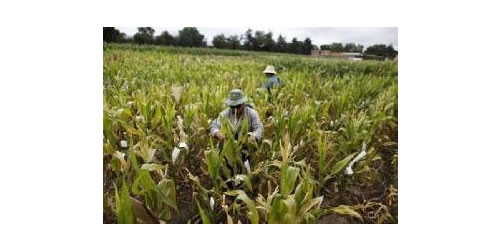Removing Antibiotics Off The Food We Eat

Antibiotics for decades have been used to treat bacterial infections which could have otherwise become fatal. However resistance to antibiotic is an emerging public health threat in the 21st century. In spite of the fact that a significant proportion of antibiotic usage happens in the agricultural sector, not much attention is given to how human antibiotic usage in agricultural sector contributes to the overall problem of antibiotic resistance.
An estimated half of the antibiotics produced globally are used in agriculture sector, with majority of this being used to stimulate quicker growth and to avert, rather than to treat diseases. This inappropriate and overuse is generating more antibiotic resistant bacteria. Resistant bacteria found in livestock can be transmitted to humans through consumption of infested food, from straight forward contact with animals, or by environmental spread, for example in a water or soil that has been contaminated by these resistant bacteria.
Resistance to antibiotics is an imminent public health disaster in the waiting if measures are not taken to minimise and/or eliminate its usage in animal foods which ultimately end on the food table of consumers. In fact, the World Health Organisation has warned that, without urgent action, we are heading for a post-antibiotic era, in which important medicines would stop working and common infections and minor injuries can once again kill a whole population like what influenza did at the start of the last century. According to the WHO, there are very few antibiotics discovered and developed since 1985 to replace those becoming ineffective.
There are also substantial discussions in animal medicine regarding use of antibiotics in animals raised for human consumption. The possible danger to human health consequently from the improper usage of antibiotics in food animals is very important, as pathogenic-resistant organisms spread through these livestock and are able to enter the food supply system and could be extensively distributed in food products.
The Cost of Antibiotics Resistance
The persistence use of antibiotics either taken in a form of doctor’s prescription (or over the counter) or through the consumption of animal produce, can constitute some forms of danger. The consequence is that progress in modern medicine, which relies on the availability of effective antibacterial drugs, is now at risk. For instance common infections such as pneumonia that can run in health care settings, may not respond to available or recommended drugs like penicillin, putting the lives of patients at risk.
Cystitis, one of the most common of all bacterial infections in women, may become untreatable or need to be treated by injected drugs, imposing also additional costs to the patients and to the health system in general and increased side effects from the use of multiple and more powerful medications.
Every year in the European Union alone, an estimated 25,000 patients die because of a serious resistant bacterial infection acquired in hospitals.
Treatment cost for some infections are becoming expensive as results resistance to treatment. In the USA for example, according to the Centre for Disease Control and Prevention (CDC) reported that antibiotic resistance in the United States costs an estimated $20 billion a year in excess health care costs, $35 billion in other societal costs and more than 8 million additional days that people spend in the hospital.
Information about antibiotic resistance is seems to lacking in Africa in general and Ghana in particular. A conservative estimate from the WHO estimates that by the 2050, death related to the ABR would reach 4,150,000 per year.
Going Forward
Global antibiotic guidelines for public awareness creations have been designed by groups such as Consumer International to encourage cautious and/ or minimal use of and reduce needless contact to antibiotics, with the eventual aim of preserving their usefulness for serious and life-threatening infections. As at now Ghana has not initiated any actionable step to prevent the looming danger. A commitment to reducing the use of antibiotics and AMR in the short and long term should include should be national as well as global.
The Food and Drug Authority (FDA) and the Veterinary Services Department of the Ministry of Food and Agriculture (MOFA) should start regulating the importation of antibiotics for non-human direct usage. Inspection of poultry, livestock and fish farms should be intensified to encourage best practices. The FDA and the MOFA should intensify AMR surveillance in the animal population, across the food chain, and in the human population and the promotion of the cautious use of antimicrobial agents in animal and human medicine.
There is also the need to start checking antibiotic residue on imported and frozen animal products so preclude from entering the market products with high antibiotic residue.
Antibiotics that are used in human medicine should only be used in veterinary medicine to treat sick animals and, on rare occasions, for non-routine disease control if disease has been identified in other close contact animals.
Antibiotics that are used in human medicine should never be used for growth, feed efficiency, or for routine disease prevention. Multinational food businesses with global supply chains like the KFCs, MacDonald’s, Shop Rite, etc are in a position to drive changes faster than legislation alone. This can be done by demanding of these companies and subsidiaries to use animal produced with the needful use of antibiotics.
National governments and international organisation such as the World Health Organization (WHO) should recognise the need to respond to this impending global crisis. Along with addressing overconsumption of antibiotics in human medicine and promoting the development of new drugs, changes in farming practices must be on the agenda of policy makers.
There should be a well-defined a global medium to long term, with time-bound action plan to phase out the routine use of antibiotics used in human medicine across all livestock and poultry production sectors.
Government actions alone however will not be enough. Businesses, civil society organisations and consumers will need to play a role by demanding for a comparable alternative.
Source: CUTS Ghana





